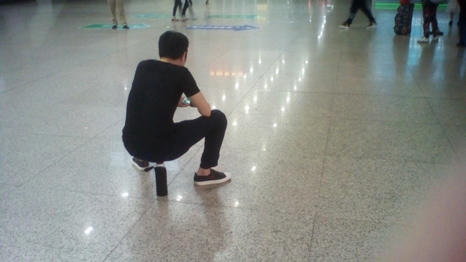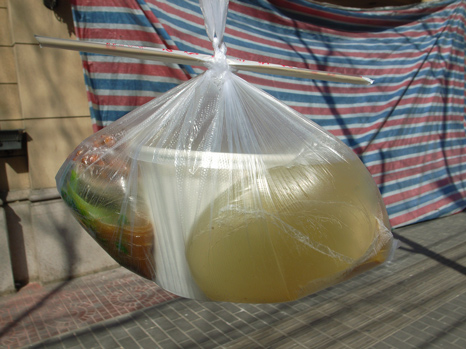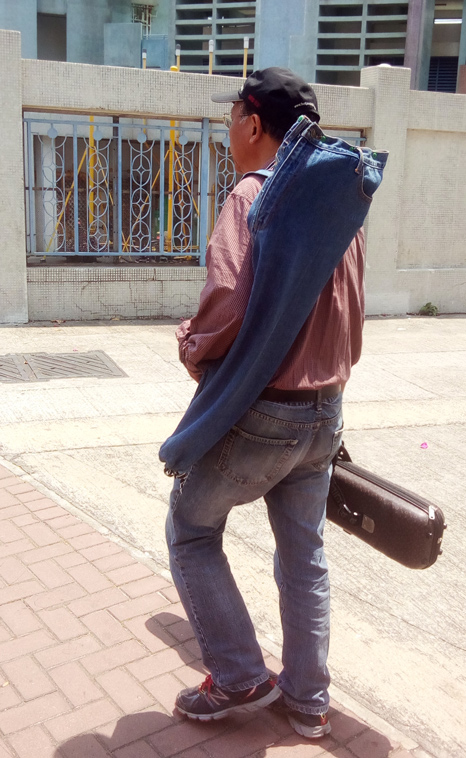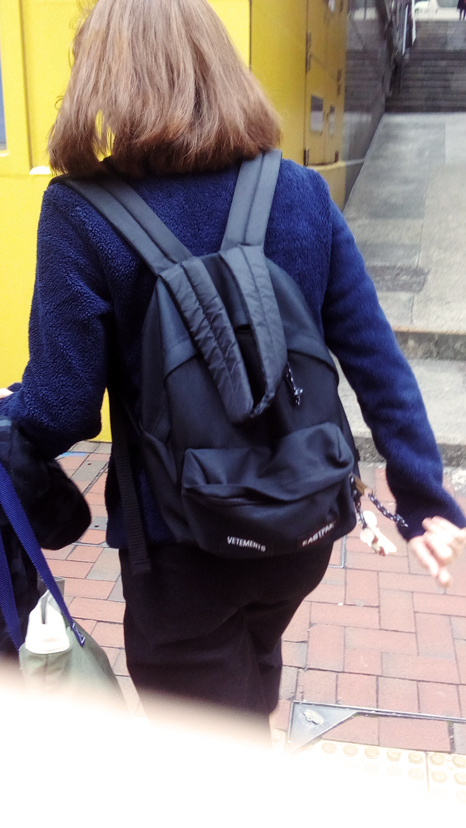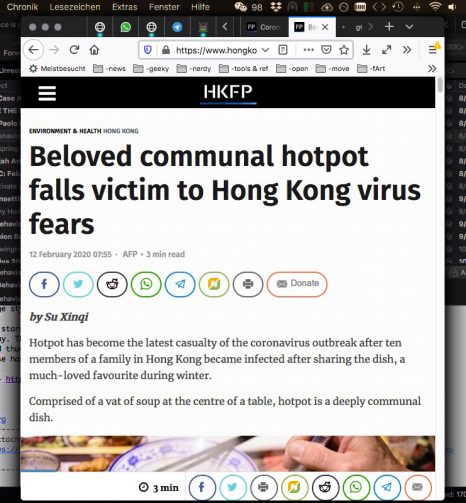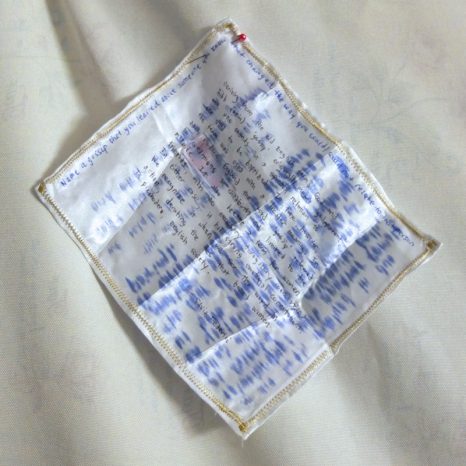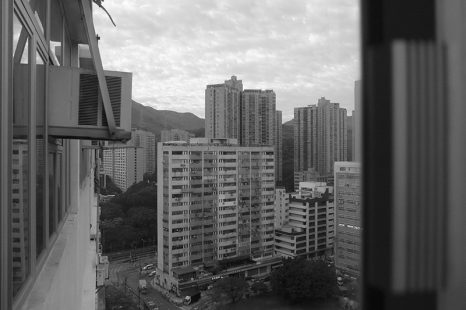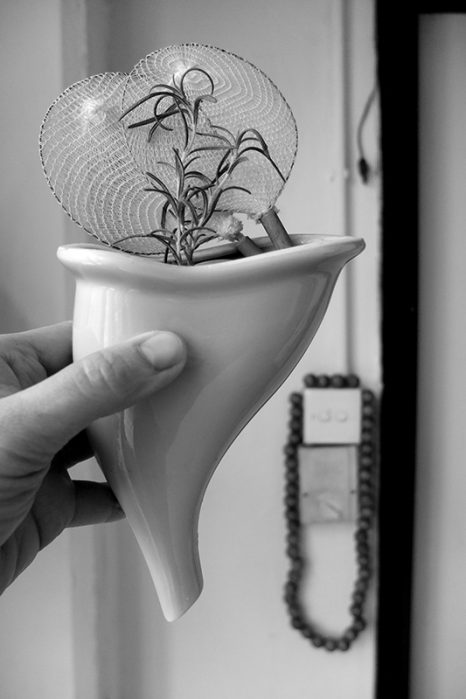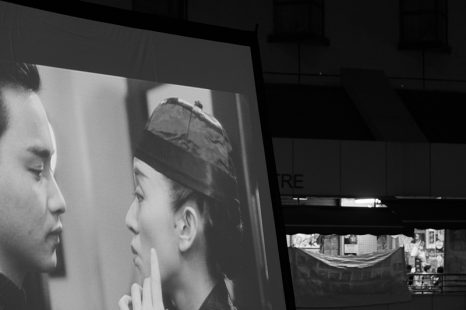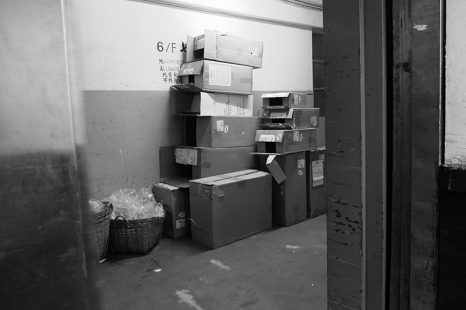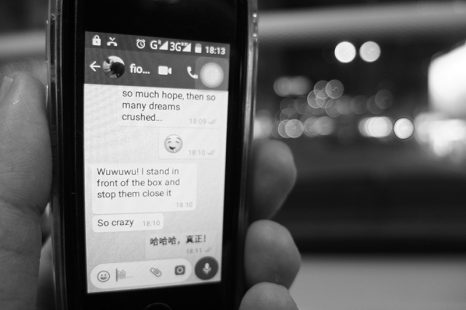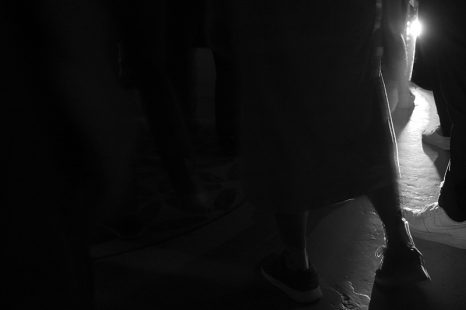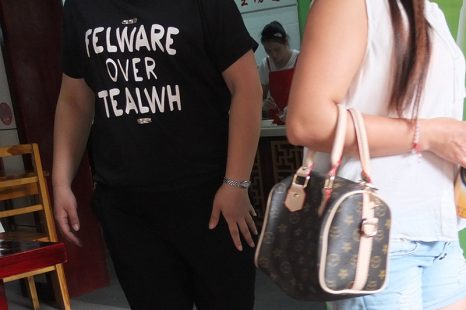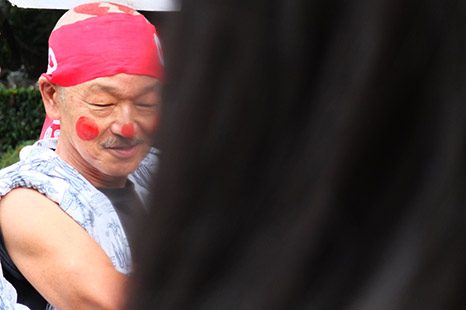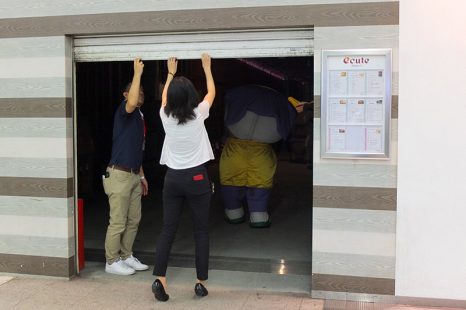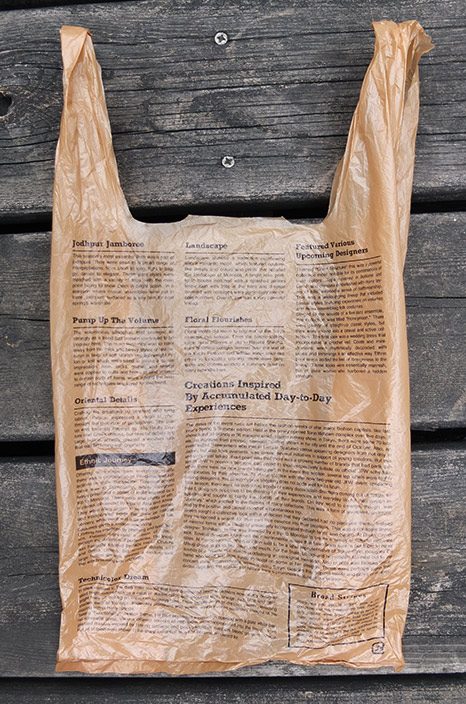i flew again on your birthday. that’s the excuse anyhow, for these weeks of greetingless-ness. but noticing that this makes for too many times of beginning with ‘sorry’ when the greeting finally comes, i don’t want to say sorry yet again——know i’ve already sucked the meaning of words dry these last years. too much has already been said, or if i did say it, something always warps and buckles along the way. bristles bend. it never feels right, and i detest this rightness. words overlap and cancel one another like low-res animations playing endlessly in an empty, unlit room.
actually it is now the third year in a row to be on an airplane on your birthday, perhaps the mark of a ritual. to be in air as excuse, to be full of air as metaphor, to be on flight mode as break of communication. to catch so much of your own breath there is no longer space for words. being in an airplane is kind of like that, anyhow, the quiet of disquiet, white noise turns pink turns brown, ears turn inwards.
perhaps rituals serve the same purpose: affirmations of meaning that do not really require words. small gestures repeated at certain intervals of time create affective knowledge, like knowing the amount of time before the sun’s blessings make Alÿsian-sized valleys of industrial blocks of ice. the valley of all that i could have said but did not spilled over the sides of the building, he sent American Greetings e-cards once a year, there was a click over a caress. she would rather say nothing at all than let it be said cheaply.
a no-rhythm rhythm. that’s the ritual. flight mode white-pink-brown noise, repetition, air-pressurised tinnitus, the rituals of getting older. i miss you sometimes and that is all. there is not much more efficacious beyond that. i really hope that you are happy, that your body fills with good air and songs of peace. the fact that i can no longer tell otherwise is perhaps the sign that there was no more space for me to know——air time——like the sound of a stranger’s breathing next to you on a long distance journey. it feels close because everything around is passing darkness, and you’re too timid to ask any more questions because you were once cursed for it. and because the best regard answers in words never bring you anywhere.
better to take a flight instead.
happy birthday and a new year, f
Posted by 丫 | more »
without cringing 2022 screenshots of january and june Posted by 丫 | reply »
å°æ”œå¸¶ç†è«–,å°èªª small carrier bag theories,small fictions
you avoid nostalgia
「没开始我就开始抗拒ã€
but all these things, you, around
「让我消化抗拒ã€
__
生日快樂 happy birthday,ying
(quotations from cyan,2021年6月5日)
Posted by 丫 | reply »Textual Notes PWSSSRFS…
(there are reasons to think about my body and hygiene these days)
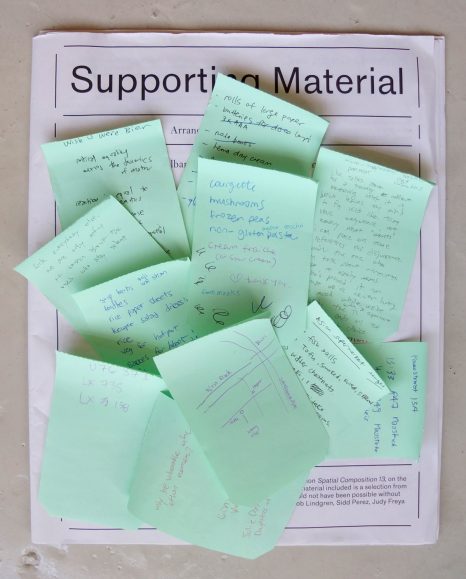
— Notes taken while on residency with Amy Suo WU at Motel Spatie; Arnhem Presikhaaf, 2020 January-February
In the time of that sojourn, a surface wound that stayed the entire time, irritated, flaming and hardened so much that it was narrated from being the oddity of a pimple on my hand to the paranoia of a wart-like abscess. It accompanied me during our conversations like a replacement for the biting of nails which had accompanied me since childhood, the extra psychosomatic conversation with myself to harmonise and discord with any other conversations going on in the room. And we spoke about intersectionality.
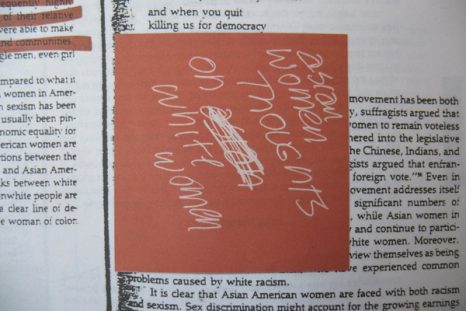
— from “Worlds in Collision: Multicultural Art History (Selection)” by Carlos VILLA, from Supporting Material by Celine CONDORELLI
I picked at it, making it bleed and scab over more than once, wondering if this would be the lifelong marker with which to remember this time. Other people get tattoos for such occasions, but somehow for me bruises, scars and mosquito bites were always enough. Sometimes I liked to think about the tiniest bit of spittle from an insect you never saw being smuggled transnationally, at peak seasons such that your body could carry two nationalities of mosquito saliva at the same time, recognisably different by the radius of red and degree of itch.
It was only a surface. But as my skin-scoring became manic, I remembered one of the first meals we shared together, when we were happy to find a few pairs of disposable chopsticks in the otherwise fork-and-knife-loaded space. A bit too brashly did I rip apart the two sticks and rub their ends together so as to smooth the rough edges in the way that we had learned, and somehow a little bamboo splinter had lodged itself into the meat between the thumb and forefinger of my right hand. This is the pressure point you are supposed to massage in order to release anxieties, and so it was that this residency——initially planned as an artistic labour——unfolded into my body subversively with a small army of histamines hardening a point known as åˆè°· hégÅ, or LI-4. Like a pain to help release pain.
I had been telling everyone that it had been such a difficult year for me, or for most people in my context, rather, but now, when I had limited this sabbatical purposefully to run back into the fire, that heat seemed to flake away into something much more quietly insurrectionary, like the last hibernation before the end of the world. What were we gathering amidst these stories and meetings, me picking self-consciously at a surface wound on the back of my hand and scheming in those vague ways afforded by poetry? Would it be possible to be productive about this care in letting go, somewhere in between concern and a manic extraction of the conversation one has with oneself, parasiting off of the glimmers of knowledge and joy and jealousy of these people around me. So many intensities.
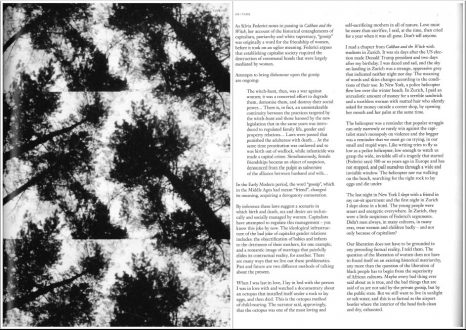
— “Witch-hunt: gossip has always been a secret language of friendship and resistance between women”, Hannah BLACK
In many parts of the world, women have historically been seen as the weaver of memory——those who keep alive the voices of the past and the histories of the communities, who transmit them to the future generations and, in so doing, create a collective identity and profound sense of cohesion. There are also those who hand down acquired knowledges and wisdoms——concerning medical remedies, the problems of the heart, and the understanding of human behaviour, starting with that of men. Labelling all this production of knowledge ‘gossip’ is part of the degradation of women——it is a continuation of the demonologist’s construction of the stereotypical women as prone to malignity, envious of other people’s wealth and power, and ready to lend an ear to the Devil. It is in this way that women have been silenced and to this day excluded from many places where decisions are taken, deprived of the possibility of defining their own experiences, and forced to cope with men’s misogynous or ldealised portraits of them. But we are regaining our knowledge. As a woman recently put it in a meeting on the meaning of witchcraft, the magic is: “We know that we know”.
— Witches, Witching-hunting and Women, Silvia FEDERICI
Among you, it becomes difficult to compare all that has been said to all that has not been said. All of these conversations. And these words are a conversation with those conversations, if not simply out of a question of translation but out of the need to make space for myself in this constellation of you(s) and me(s). To ascertain, like that book I took from your bookshelf: Feelings are Facts. We(s) would need to meditate through hours and hours of these discourses in order to sift though the medley of feelings that make up this moment, and that is a fact, too. Yes, as the witches say, “We know that we know“.
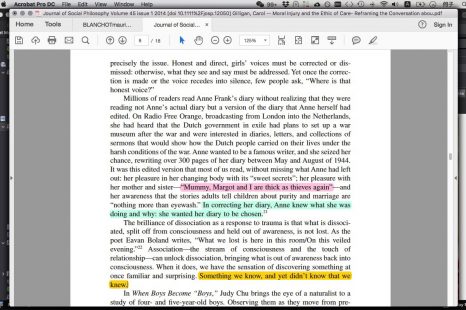
— “Moral Injury and the Ethic of Care: Reframing the Conversation about Differences”, Carol GILLIGAN
And maybe I know too many things. My head is filled with all sorts of banalities like the facial expressions of strangers and the taste of your favourite Grüner Veltliner and the prick of winter mosquitoes. Like the approximate sojourn of a piece of shit that appeared a few days after I arrived. It was the lack of anyone’s care to remove it from the narrow path between our residency room and the project space, making it such that you took the long route around every time, while I forged ahead to play hopscotch. I had the forethought that this dog I never saw had left the natural wastes of its circulating body just like the mosquitoes, and perhaps I should bring other contraband back this time as another memento of my stay. But an uncared-for poop was just a parallel temporary visitor like us to this space motel, and the day before I departed, what were now like hardened coal nubs finally blew away with that strange storm of not very much rain. Perhaps its winds were so great it blew its own rain away, a storm having a frightening conversation with itself. Its utterances came out like screeches and gales that shook the glass of our cove. From inside, we lifted our heads up in awe, and when we went outside we walked at strange angles with our heads down, pretending not to overhear. Buddha was also blown violently away that day, falling off of a neighbour’s balcony and left as an Asian corpse shattered in the white neighbourhood. In the beginning I kept thinking we would have been a strange sight here, our little crew, but actually there was nobody around most of the time, and we were left to play on our own like children at the slumber party. We stole time that way, turning their money and our own productivity into a space for taking care. Even so, I walked on that shit at least once, but you took time, and we cleaned up our tracks together. Self-quarantine, if you want to call it——I gained ten kilogrammes, too——but something else feels lighter because I know we had taken it on together. This takes space and so it was that ‘project ruimte’ was exactly that, not as the space for projects but a project to make space, as a fact of feelings between us——to read together with long pauses in between, to write letters from near and far, and to eat and resist the fallen communality of a shared meal out of one bowl. To be together and trust in someone else’s voice to guide when our eyes are closed.
I don’t know yet how to bring this space into visibility. And maybe it doesn’t have to, except as mischievous glances and giggles between those of us who know, and even if you don’t see us you will feel the smiles in our voices in that space behind your ears and in front of your neck——a tingling somewhere between an itch and a tickle to make chords and discords in you, too. Take care.
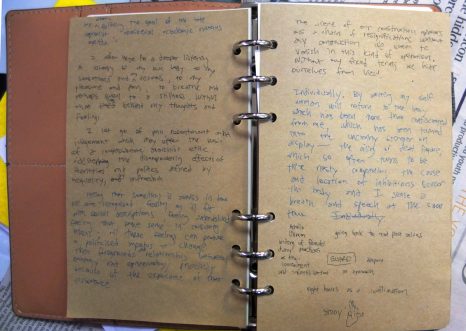
— Altered quotations and notes taken from the afwasdoekje reading group, PWSSSRFS No. 1, 2020 January 25
Posted by 丫 | reply »
首爾蘑è‡ç†è¨˜ Spore-adic Notes for Seoul
 Y’s drawing appeared on his leg a few weeks later…
Y’s drawing appeared on his leg a few weeks later…
Having left out the exact words i had meant to express to her, i sent the e-mail a second time: “oh, before i meant to say: ‘and despite *my fear and nervousness*…’ ” Fear and nervousness to be left out at all costs, if we are to talk about serendipity. Except that it’s a silly word. Except that we couldn’t find the right word in Korean. Because 緣份 is more than serendipity, if we are talking about circles of time, letting things be, how we got here in the first place. I will try to forget about my fear and nervousness, to find comfort in someone else’s words, like D. says—“ç†è«–很舒æœâ€ã€‚
It’s the resonance that she means here, and that is to say a——let’s call it ‘pleasant’——reverberation between the two.
(it’s funny how that’s never really so acceptable in art economies)
 from “Things That are Massively Distributed” by Alma HEIKKILÄ
from “Things That are Massively Distributed” by Alma HEIKKILÄ
Y.Y. and I.S. made an exhibition with the exact same name as our project a few months ago. I didn’t know, I really didn’t know! Clumsily avoided saying too much afterwards except the utterly boring, “I really liked your show”, and basically also delayed to read the accompanying publication, for fear of inadvertently finding too much resonance. But then one thinks they should be doing more research, the spores have already been released and——let’s take small comfort in numbers again——I.S. does write about three plus one becoming understandings of the word ‘catalogue’, so one and one and one and one…new appendages would be the point of these communiqué—let’s grow into our new eachother bodies.
(a question to you though, why does agency become automatically associated in singularities?)
 from “Catalogue Essay” by Isabelle Sully, Catalogue (Publication Studio Rotterdam, 2018)
from “Catalogue Essay” by Isabelle Sully, Catalogue (Publication Studio Rotterdam, 2018)
And then at the cusp of their heat wave, the one that makes a girl conditioned to heat and sweat giggle, other Girls Like Us picked up the same networks of drifting mycellium, and they deconstructed the magazine in another magasin, taking off and piling up, cushions and colours and all forms of care…

from the Girls Like Us workshop; A School, A Park 2018
We keep talking about things that spread and circulate. People, goods, ideas, memes, mycelia. All that fussing about, when actually the question of survival, of making a home (outdated concept?) is a very concentrated, tiny little thing. Like focusing upon words across lines, line to line, and all the networks in the world following through to that little nub at the end of a serif font. And of course it’s no end, Borges, the sentences continue, and your train of thought goes somewhere else. I’ve misunderstood you.

Dear Anna,
Today we had a very nice discussion centring around your book with our collaborators from Read-in and Kunci, and together we came up with a few questions to ask you:

M. has mentioned several times about needing to find out again the name of the Japanese scholar who talked about our Asian spinelessness. In Eastern ontology of print there was no spine. The book was a scroll. Does the spine allude to a ‘Western rigidity’ and an obsession with structure and order? “We have no spine but that will be something that we’ll talk about.”
(but to have the courage to talk about it, i’ll have to forget my fear and nervousness)
To mention in speech what somebody else has said is perhaps a way of ‘owning it’. Or what are the footnotes of speech? Can the simultaneity of attributions be translated in real-time, like ASMR tingles and little cartoon devils on shoulders? And what if you are the one who is really terrible at telling stories, at making the punchline of the joke work? No, I think I’m funnier in Chinese.
But what I really wanted to tell you about is something that has half-slipped my memory for at least ten years now, though the other half of it keeps coming up every now and again, like those waves of text while walking.
I read you here and I read you there, here and there, like a spore trapped in my memory because I will always remember the fuzz of something in the vicinity of you on the page. At the same time I know exactly where you are, left or right, a third of the way down…everything else in darkness as we rode a night bus through a foreign country.
— from the COVER; Hong Kong, Shenzhen and Guangzhou, Display Distribute『CATALOGUEã€No. 3, co-edited with Kunci and Read-in
This one was somewhere about three-quarters of the way down, on some days it’s on the left side of the page, on others it’s the right. He talks about the linguistic typology of words that become true by virtue of their utterance——what are they called? In conjunction with this writing, I tried——as I do every once in a while when I want to ‘own it’, to track it down again. Weird keyword searches, scanning the possible PDFs. Tonight I realised that I must have lost the hard copy of that beloved book, the one that I think it’s in. But then I found only one sentence from the entire PDF version highlighted: “For human beings who have lost every sense of naturalness, each single gesture becomes a destiny.”
I won’t tell you who this comes from so that you’ll feel the same haziness as I do,
(remember my place on the page)
as if I was telling it to you in casual conversation while we are waiting together for something. Let’s own it. But anyway, it’s not the term ‘speech acts’. Though I saw that exhibition as well. If we should talk about our being-in-language, utterances to representation, yes, then my fear and nervousness comes back, a whole life gone by…destiny. and it circles back to 緣份. it must be circular, it must be circular, I say to myself. Not so grandiose as a speech act, but as small and tiny a little thing, like, “sigh…”
____________
* This post is also, in ever so slight variation, germinating another website called åœç¾¤ Monument of Apron。
Posted by 丫 | reply »seven days for désiré[e] (don’t pull away)
she called it a challenge in black and white, the days numbered incorrectly, but the rules repeated. seven seven seven seven seven seven seven days, seven seven seven seven seven seven seven photos of your everyday life. no explanation, no people. supposed to challenge a friend to join, so 點, a?
Posted by 丫 | reply »anything fun going on

Is ‘Anything fun going on?’ a funny or weird question? I thought it was quite quotidian——’æ€Žä¹ˆæ ·?’〒What’s up’——but if it all sounds too rhetorically polite and this context of digital correspondence should eliminate inquiries into some IRL, please accept my sincerest apologies.
unwarranted aside into anecdote. i was in a shopping mall the other day and while browsing a selection of a proud to be Texas-born international company’s fine wristwatches, the perky shop assistant asked, ‘So what have you been up to today?’, the unfortunate response being my fleeing the store. What should be reported of my day to a pouncing stranger tracking my eyeball movements to see which watch i’m attracted to——or as if now the policing and surveying has become so diffuse that everyone, even the shopgirl, is a viable check and measure on the status update of each and every consumer. Because yes we are all consumers now, taking precedent over ‘citizenry’, no more obviously felt than by way of those worldly practices people are able to maintain relatively easily in every place (latte, hamburger, uber ride). Of course, this is an observation of privilege coming from an (un)fortunate frequent traveler of ‘destinations’ that bear Starbucks logos as opposed to those other greater parts of the world still lacking decent infrastructure and education for its inhabitants, parts of the world that are still war-torn or ‘uncivilised’, parts of the world where the imperatives for freedom are not yet measured by the variety of packaged goods. And even if you don’t frequent Starbucks, or McDonald’s, or hitch uber, the fact that there are equally plentiful ‘organic’ and ‘artisanal’ backups is another minima moralia.
That is the fun going on, actually. We’re having so much fucking fun everyday we don’t know what to do with ourselves. Asking ‘anything fun going on’ is offensive, maybe, you’re right. Like swiping feeds, goddamit, information bloodsucking, ‘consumers are always right’.
‘Anything fun going on’ is like the airline attendant at the check-in counter who, since I’ve told her my profession is ‘artist’, asks where my most recent favourite exhibition has been. She is curious to know not only the city but the name of the institution, and for a moment i imagine her honestly believable sincerity. She proceeds to ask me which show was my favourite. A show that I have participated in or any show in general? Yours. Okay, hmmm… trying to be quick and effortless (speed and style as truth), I tick off a show that took place at a gallery in a different city. What is the name of the gallery? And as I name a name, I wonder about her interest in the institutions of culture, about the casual sophistication of big brothering these days, at this makeshift tin terminal that appears to have been built specifically for flights to the United States and Israel. This is perhaps due to the extra demands for security, both from the increased chance of malicious attacks and from the U.S. imposition of preemptive security measures abroad to prevent such attacks. So when a young Italian woman in uniform asks me about the fun details of my life, a subjective displacement has already taken place, and cynicism says it’s not a person talking to me, but the mechanisms of a system which have already striated us into one of a few alternating roles: policing agent, perpetrator, victim or just another piece of data. Friendliness as an appropriation for smoother extraction. Consumer interaction as marketing as profiling as social control as endless production.
You always put the state and the spy as counterforces, but I am afraid ‘the gravitational force of what is bourgeois’ within us entertains the story in its complexities of rendering forces ambiguous. Spy works for state. What is the name of the state? And how do you do today?
Posted by 丫 | reply »

